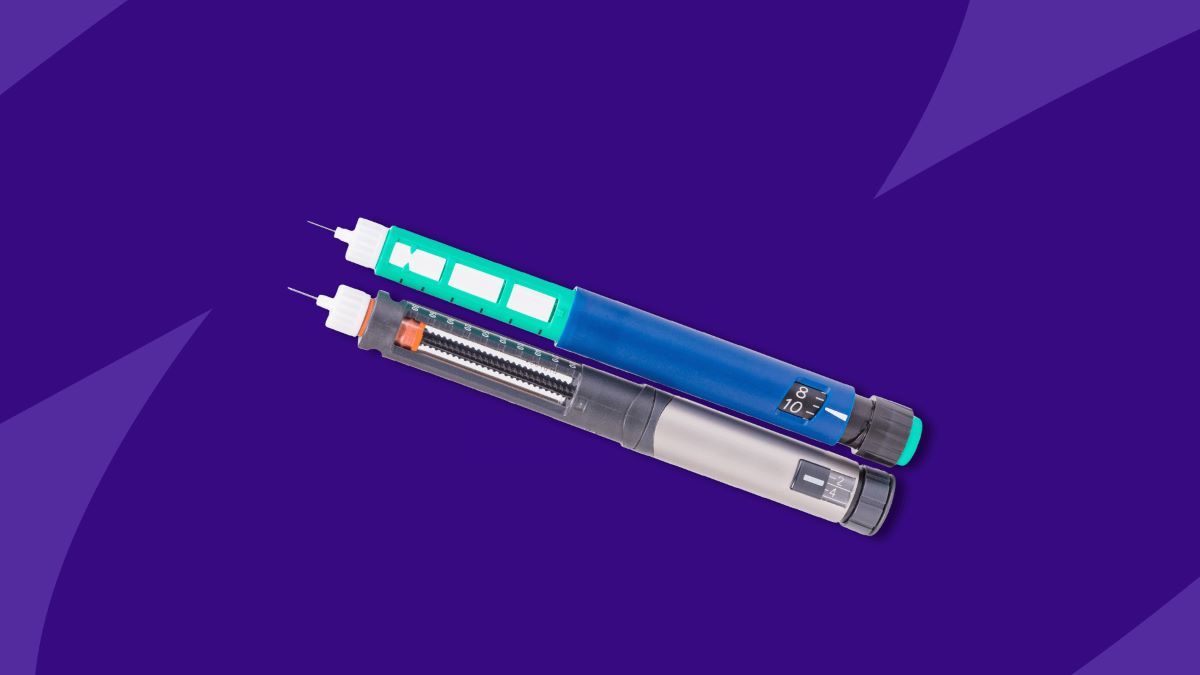Home>Finance>How To Get Ketamine Infusions Covered By Insurance


Finance
How To Get Ketamine Infusions Covered By Insurance
Published: November 8, 2023
Learn how to get your ketamine infusions covered by insurance through strategic financial planning and understanding the ins and outs of your policy. Explore the possibilities and save on your medical expenses today!
(Many of the links in this article redirect to a specific reviewed product. Your purchase of these products through affiliate links helps to generate commission for LiveWell, at no extra cost. Learn more)
Table of Contents
- Introduction
- Understanding Ketamine Infusions
- Importance of Insurance Coverage
- Steps to Get Ketamine Infusions Covered by Insurance
- Research Your Insurance Provider’s Policy
- Gather Relevant Medical Records and Documentation
- Consult with Your Doctor or Specialist
- Submit a Pre-Authorization Request
- Advocate for Coverage
- Consider Appeals or External Review
- Conclusion
Introduction
Getting the right treatment for mental health conditions is crucial for individuals looking to improve their quality of life. Ketamine infusions have emerged as a promising option for those suffering from depression, anxiety, PTSD, and other related disorders. However, the cost of these infusions can be a barrier for many individuals seeking this innovative treatment.
The good news is that insurance coverage for ketamine infusions is becoming more common. Many insurance companies now recognize the potential benefits of ketamine therapy and are willing to provide coverage for it. This is a positive development, as it allows more individuals to access the treatment they need without bearing the entire financial burden themselves.
In this article, we will explore the steps you can take to increase your chances of getting ketamine infusions covered by insurance. By understanding the process and advocating for yourself, you can navigate the complexities of insurance coverage and potentially receive the financial support you need.
Before we delve into the steps, let’s first explore what ketamine infusions are and why they are gaining traction as an effective treatment.
Understanding Ketamine Infusions
Ketamine is a medication that has been in use for decades as an anesthetic. However, recent studies have shown that ketamine can also have remarkable effects in treating mental health conditions, particularly treatment-resistant depression.
Ketamine infusions involve the administration of a controlled dose of ketamine through an intravenous (IV) line. The infusion is typically given over a series of sessions, with each session lasting around 40 minutes to an hour.
One of the key advantages of ketamine infusions is their rapid onset of action. Unlike traditional antidepressant medications, which can take weeks or even months to take effect, ketamine infusions may start to alleviate symptoms within hours or days. This rapid response makes ketamine infusions an attractive option for individuals who have not found relief from other treatment methods.
It’s important to note that ketamine infusions should always be administered under proper medical supervision. The dosage and frequency of infusions will vary depending on your specific condition and response to treatment. Therefore, it is essential to work closely with a qualified healthcare professional to determine the most effective treatment plan for you.
The growing body of evidence supporting the efficacy of ketamine infusions has led to increased interest and availability of this treatment option. However, due to the nature of ketamine therapy being relatively new in the field of mental health, insurance coverage can be a challenge.
Next, we will explore the importance of insurance coverage for ketamine infusions and how it can make a significant impact on your ability to access this potentially life-changing treatment.
Importance of Insurance Coverage
Insurance coverage for ketamine infusions is crucial for individuals looking to undergo this treatment. The cost of ketamine infusions can be significant, with each session ranging from $400 to $800 on average. Multiply that by the number of sessions required, which typically ranges from six to twelve, and the total cost can quickly become unaffordable for many people.
Insurance coverage can alleviate the financial burden and make ketamine infusions more accessible to those who need them. It allows individuals to focus on their treatment and recovery without the added stress of worrying about how to pay for it.
Furthermore, insurance coverage for ketamine infusions can also open doors for individuals who may have exhausted other treatment options. For those with treatment-resistant depression or other mental health conditions that have not responded well to traditional therapies, ketamine infusions offer a new hope for relief. Having insurance coverage can bridge the gap between available treatment options and the potential benefits of ketamine therapy.
Insurance coverage is also important from an equity standpoint. Mental health conditions can affect anyone, regardless of their socioeconomic status. By providing insurance coverage for ketamine infusions, access to this potentially life-changing treatment is not limited to those with higher incomes or better insurance plans. It ensures that individuals from all walks of life have a fair chance at receiving the care they need.
It’s worth noting that insurance coverage can vary significantly depending on the insurance provider and the specific policy. Some insurance companies have already recognized the value of ketamine infusions and may cover it to some extent, while others may still be catching up to the potential benefits of this innovative treatment. Therefore, it is essential to understand your insurance policy and take steps to advocate for coverage.
Next, we will outline the steps you can take to increase your chances of getting ketamine infusions covered by insurance.
Steps to Get Ketamine Infusions Covered by Insurance
While the process of getting ketamine infusions covered by insurance can be complex, it is not impossible. By following these steps, you can increase your chances of securing insurance coverage for this potentially life-changing treatment:
- Research Your Insurance Provider’s Policy: Start by reviewing your insurance policy documents or contacting your insurance company directly. Look for any mention of coverage for ketamine infusions or mental health treatments. Understand the requirements, limitations, and any specific documentation needed to support your claim.
- Gather Relevant Medical Records and Documentation: Your insurance company may require specific medical records, treatment history, or letters of medical necessity from your healthcare provider. Ensure that you have all the necessary documents to support your case for ketamine infusions.
- Consult with Your Doctor or Specialist: Schedule an appointment with your doctor or a specialist who can evaluate your condition and determine if ketamine infusions are a suitable treatment option for you. They can also provide valuable insight and guidance on navigating the insurance coverage process.
- Submit a Pre-Authorization Request: Many insurance companies require pre-authorization for certain medical procedures or treatments. Work with your healthcare provider to submit a pre-authorization request for ketamine infusions, providing all the required documentation and supporting evidence of medical necessity.
- Advocate for Coverage: If your insurance company denies your claim or provides only partial coverage, don’t be discouraged. Reach out to your healthcare provider and insurance company to understand the reasons for the denial or limitations. Provide any additional information or evidence that may support your claim, such as published studies or case reports showcasing the effectiveness of ketamine infusions.
- Consider Appeals or External Review: If your initial claim is denied, you may have the option to appeal the decision. Review your insurance company’s appeals process and timelines, and work with your healthcare provider to prepare a strong appeal. In some cases, an external review by an independent reviewer may also be an option if the appeals process is unsuccessful.
Remember that each insurance provider and policy may have different requirements and processes. It is vital to stay proactive, persistent, and well-informed throughout the process. Engage in open communication with your healthcare provider and insurance company, and don’t hesitate to seek guidance from patient advocacy groups or mental health organizations.
By carefully navigating the insurance coverage process, you can increase your chances of getting the financial support needed to undergo ketamine infusions and potentially achieve relief from your mental health condition.
Research Your Insurance Provider’s Policy
The first step in seeking insurance coverage for ketamine infusions is to thoroughly research your insurance provider’s policy. Familiarizing yourself with the specific details of your policy will help you understand the scope of coverage and any limitations or requirements that may exist.
Start by reviewing your insurance policy documents, either online or in print. Look for any specific information related to mental health treatments or procedures. Pay attention to any exclusions or limitations mentioned in the policy, as some insurance companies may have specific criteria for covering ketamine infusions.
If you don’t have access to your policy documents or find them difficult to understand, contact your insurance company directly. Customer service representatives can provide guidance on coverage for mental health treatments and answer any questions you may have.
When researching your insurance provider’s policy, consider the following key points:
- Coverage for Mental Health Treatments: Determine if your policy provides coverage for mental health conditions and treatments. Look for specific information regarding depression, anxiety, or other related disorders that may be relevant to pursuing ketamine infusions.
- Criteria for Coverage: Identify any requirements or criteria that must be met for your insurance company to consider covering ketamine infusions. This may include previous treatment failures, documentation of a specific diagnosis, or approval from a mental health specialist.
- Out-of-Network Providers: Check if your insurance company allows coverage for services provided by out-of-network providers. Ketamine infusion clinics may not be in-network for all insurance plans, but some insurance companies may still offer coverage at an adjusted rate.
- Prior Authorization: Find out if a prior authorization is required for ketamine infusions. This is a common process where your healthcare provider must submit documentation and obtain approval from your insurance company before treatment can begin.
- Cost-Sharing and Deductibles: Understand your financial responsibilities, such as copayments, coinsurance, and deductibles. This will give you an idea of the potential out-of-pocket costs you may face when pursuing ketamine infusions.
By conducting thorough research on your insurance provider’s policy, you will have a better understanding of what is covered, what requirements need to be met, and any potential costs you may incur. This knowledge will lay the foundation for navigating the insurance coverage process effectively and advocating for your needs.
Gather Relevant Medical Records and Documentation
When seeking insurance coverage for ketamine infusions, gathering relevant medical records and documentation is crucial. Insurance companies often require detailed information to support the medical necessity of the treatment and to assess whether it meets their coverage criteria.
Here are some important steps to take when gathering the necessary medical records and documentation:
- Request your medical records: Contact your healthcare provider or mental health specialist to request copies of your medical records related to your condition and previous treatments. These may include psychiatric evaluations, therapy notes, medication histories, and any other relevant documents.
- Include letters of medical necessity: A letter from your healthcare provider can provide additional support for the medical necessity of ketamine infusions. Ask your doctor or specialist to write a detailed letter explaining why ketamine infusions are deemed necessary for your specific condition, and how they can potentially improve your quality of life and mental health outcomes.
- Prior treatment failures: Highlight any previous treatments you have undergone and their lack of effectiveness in your medical records. This can demonstrate to the insurance company that you have already explored alternative options and that ketamine infusions are a necessary next step in your treatment journey.
- Include relevant diagnostic test results: If you have undergone any diagnostic tests such as brain imaging scans or laboratory tests that support your diagnosis, include those results in your documentation. These objective findings can add weight to your case for ketamine infusions.
- Research studies or clinical guidelines: Find and include relevant research studies or clinical guidelines that showcase the effectiveness of ketamine infusions for your condition. These can help strengthen your argument for insurance coverage by providing evidence-based support for the treatment.
It’s important to gather comprehensive and organized documentation to make your case as strong as possible. Ensure that you have both digital and physical copies of all your records. Keep a record of who you spoke with at your healthcare provider’s office, as well as any correspondence with your insurance company, including dates and times.
By having all the necessary medical records and documentation readily available, you will be well-prepared when submitting a pre-authorization request and advocating for insurance coverage for ketamine infusions.
Consult with Your Doctor or Specialist
Consulting with your doctor or a specialist is an essential step in pursuing insurance coverage for ketamine infusions. They can provide valuable insights into your condition, determine if ketamine infusions are a suitable treatment option for you, and guide you through the insurance coverage process.
Here are some key points to consider when consulting with your healthcare provider:
- Evaluate your condition: Your doctor or specialist will assess your specific mental health condition and determine if ketamine infusions are an appropriate treatment option for you. They will consider factors such as your treatment history, the severity of your symptoms, and any previous treatment failures.
- Explain the potential benefits: Your healthcare provider can explain the potential benefits of ketamine infusions for your specific condition. They can discuss the research and evidence supporting the effectiveness of ketamine therapy and help you understand how it may alleviate your symptoms and improve your quality of life.
- Discuss potential risks and side effects: Ketamine infusions, like any medical treatment, come with potential risks and side effects. Your doctor or specialist will discuss these with you, ensuring you have a clear understanding of what to expect and any precautions that need to be taken.
- Provide a letter of medical necessity: If your doctor believes that ketamine infusions are necessary for your treatment, they can write a letter of medical necessity. This letter will explain in detail why ketamine infusions are essential for your condition, addressing the criteria for coverage outlined by your insurance company.
- Discuss alternative treatment options: Your doctor may discuss alternative treatment options in case insurance coverage for ketamine infusions is not approved. They can provide guidance on other therapies or medications that can be tried before considering ketamine infusions.
- Collaborate on the pre-authorization process: Work collaboratively with your healthcare provider to complete the necessary paperwork for the pre-authorization process. They can provide the required medical records and supporting documentation, ensuring accurate and up-to-date information is included.
Your doctor or specialist is your partner in pursuing insurance coverage for ketamine infusions. Their expertise and guidance are invaluable when navigating the complexities of the insurance system and advocating for the treatment you need.
Remember to ask questions and be actively involved in discussions with your healthcare provider. By working together, you can develop a comprehensive and well-supported case for insurance coverage and increase your chances of accessing ketamine infusions as a treatment option.
Submit a Pre-Authorization Request
One crucial step in getting insurance coverage for ketamine infusions is submitting a pre-authorization request to your insurance company. A pre-authorization is a process where your healthcare provider seeks approval from your insurance company before proceeding with treatment.
Here are some important considerations when submitting a pre-authorization request:
- Work with your healthcare provider: Collaborate closely with your doctor or specialist to complete the pre-authorization request. They are familiar with the process and can provide the necessary medical documentation and supporting evidence to make a compelling case for coverage.
- Include a letter of medical necessity: Ensure that your healthcare provider includes a detailed letter of medical necessity as part of the pre-authorization request. This letter should explain why ketamine infusions are necessary for your specific condition, citing any previous treatment failures and highlighting the potential benefits of the treatment.
- Provide comprehensive medical records: Include all relevant medical records, including psychiatric evaluations, therapy notes, diagnostic test results, and any other supporting documentation that emphasizes the medical necessity and effectiveness of ketamine infusions for your condition.
- Follow the insurance company’s guidelines: Familiarize yourself with the pre-authorization requirements outlined by your insurance company. Ensure that you submit all the necessary forms and follow any specific instructions to avoid any delays or potential denial of coverage.
- Keep copies of all submissions: Make copies of all the pre-authorization documents, including the completed forms and supporting documentation. Keep a record of the date and time of submission, as well as the name of the person you submitted the request to at the insurance company.
- Follow up with your insurance company: After submitting the pre-authorization request, follow up with your insurance company to confirm receipt and inquire about the status of the review process. Stay proactive and persistent in your communications to ensure that your request is being processed in a timely manner.
It’s important to note that the pre-authorization process can vary depending on your insurance company and policy. Some insurance companies may have specific time frames for reviewing and approving requests, so be aware of any deadlines and plan your treatment accordingly.
By submitting a thorough and well-documented pre-authorization request, you increase your chances of securing insurance coverage for ketamine infusions and reducing the financial burden associated with the treatment.
Advocate for Coverage
Advocating for insurance coverage is a crucial step in getting the financial support you need for ketamine infusions. If your pre-authorization request is denied or if the coverage offered is limited, it’s essential to advocate for yourself and make a compelling case for why insurance coverage for ketamine infusions is necessary.
Here are some strategies for advocating for coverage:
- Understand the reasons for denial: If your pre-authorization request is denied or if the coverage provided is insufficient, carefully review the explanation provided by your insurance company. Understand the specific reasons for the denial and identify any gaps or areas that need further clarification or support in your case.
- Consult with your healthcare provider: Discuss the denial with your doctor or specialist. They can review the reasons given by the insurance company and provide additional insights or recommendations. They may be able to address any concerns or provide further documentation to support your case.
- Provide additional evidence: If there is published research or clinical guidelines that support the effectiveness of ketamine infusions for your condition, gather these documents and submit them to your insurance company. Demonstrating that ketamine infusions are a recognized and evidence-based treatment can strengthen your case.
- Write an appeal letter: Craft a well-structured and persuasive appeal letter that outlines the medical necessity of ketamine infusions in your case. Include supporting evidence, such as your medical records, documentation of previous treatment failures, and professional opinions from your healthcare provider. Clearly articulate how ketamine infusions can improve your quality of life and mental health outcomes.
- Engage in open communication: Maintain regular and open communication with your insurance company. Reach out to discuss your concerns, ask for clarification, and provide any additional information or documentation requested. Building a relationship with the insurance company may help expedite the review process and increase the likelihood of a favorable outcome.
- Seek assistance from patient advocacy groups or mental health organizations: Some patient advocacy groups or mental health organizations may have resources or advocates who can assist you in navigating the insurance coverage process. They can provide guidance, offer support, and help you understand your rights as a patient.
Remember to remain persistent and proactive throughout the advocacy process. Keep all copies of correspondence, maintain a record of phone calls or emails, and follow up regularly to ensure your case receives the necessary attention. Insurance coverage decisions can take time, so be patient and continue to be an advocate for your own mental health.
With effective advocacy, you can significantly increase your chances of obtaining insurance coverage for ketamine infusions, allowing you to access the treatment you need without shouldering the full financial burden.
Consider Appeals or External Review
If your initial pre-authorization request and advocacy efforts do not result in the desired insurance coverage for ketamine infusions, it may be necessary to consider additional steps such as filing an appeal or pursuing an external review. These options can provide further opportunities to present your case and potentially overturn a denial of coverage.
Here are some important points to consider when exploring appeals or external review:
- Review your insurance company’s appeals process: Familiarize yourself with your insurance provider’s appeals process, including the specific steps, timelines, and documentation required. Understand the deadlines for filing an appeal and any specific guidelines for submitting additional information.
- Obtain a copy of the denial letter: Request a copy of the denial letter from your insurance company. This letter should outline the reasons for the denial and provide specific information on the appeals process. Use this as a starting point to build your case for appeal.
- Prepare a comprehensive appeal letter: Draft a well-structured and persuasive appeal letter addressing the concerns raised in the denial letter. Include additional medical records, supporting research, and any other relevant documentation that can reinforce the medical necessity of ketamine infusions for your condition.
- Engage the assistance of your healthcare provider: Work closely with your doctor or specialist to gather the necessary information and documentation for the appeal. Their professional expertise and opinion can strengthen your case and provide valuable support.
- Consider seeking external review: Depending on your insurance policy, you may have the option to request an external review by an independent reviewer. This process involves having an unbiased expert assess your case and determine if insurance coverage should be provided. Familiarize yourself with the requirements and procedures for external review.
- Seek legal advice if necessary: In some cases, seeking legal advice may be necessary, especially if the denial of coverage appears to be unfair or unjust. An attorney with expertise in healthcare or insurance law can provide guidance on your rights and the options available to you.
Be diligent and timely in your appeal or external review process, adhering to all deadlines and requirements. Maintain clear records of all communications and submissions, including dates, times, and the individuals you corresponded with.
Remember that the appeals process can take time, so perseverance and patience are key. By taking the necessary steps and presenting a compelling case, you increase your chances of obtaining the insurance coverage needed for ketamine infusions.
Ultimately, the goal is to ensure that you receive the comprehensive mental health treatment you require, with the financial support necessary to make it accessible and affordable.
Conclusion
Seeking insurance coverage for ketamine infusions can be a complex and challenging process, but it is worth the effort. Access to insurance coverage can significantly reduce the financial burden of this innovative treatment and make it more accessible to those who need it.
Throughout this article, we have explored the steps you can take to increase your chances of obtaining insurance coverage for ketamine infusions:
- Research your insurance provider’s policy to understand the coverage and requirements.
- Gather relevant medical records and documentation to support your case.
- Consult with your doctor or specialist to assess the suitability of ketamine infusions for your condition.
- Submit a pre-authorization request with all necessary information and documentation.
- Advocate for coverage by providing additional evidence and communicating with your insurance company.
- Consider appealing the decision or seeking an external review if coverage is initially denied.
Remember to stay proactive, persistent, and well-informed throughout the process. Engage in open communication with your healthcare provider and insurance company, and seek support from patient advocacy groups or mental health organizations when needed.
While success in obtaining insurance coverage is not guaranteed, each step taken brings you closer to accessing the treatment you need. Ketamine infusions have shown promising outcomes for individuals with treatment-resistant mental health conditions, and insurance coverage can make a significant difference in improving your quality of life.
Continue to educate yourself about the benefits of ketamine infusions, stay informed about your insurance policy, and be an active advocate for your mental health. With determination and perseverance, you can navigate the complexities of insurance coverage and increase your chances of obtaining the financial support necessary for ketamine infusions.
Remember, you deserve comprehensive treatment, and with the right approach, you can overcome obstacles and gain access to the care that can truly make a difference in your mental well-being.














